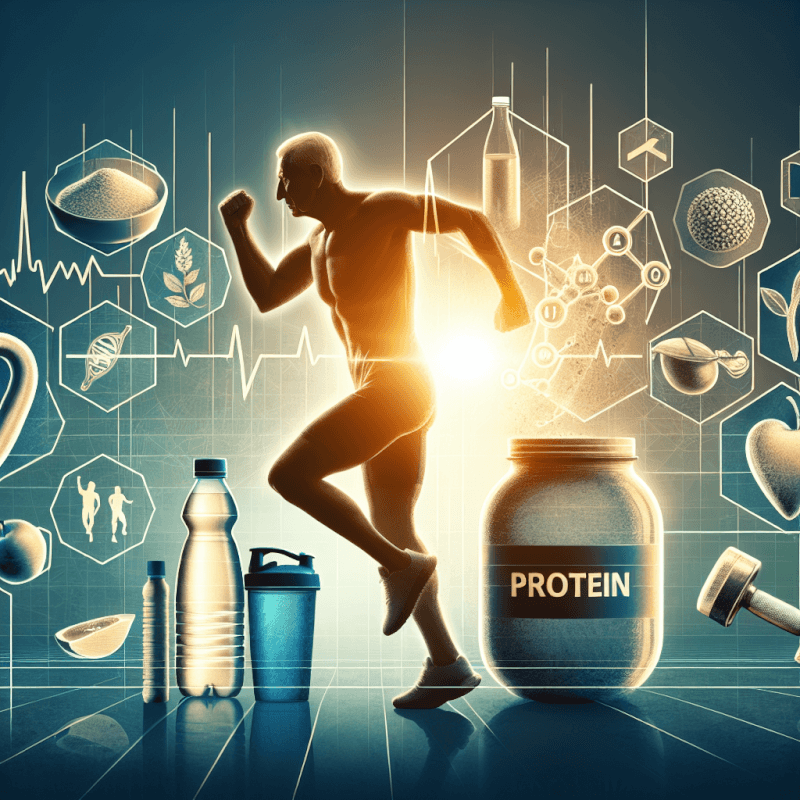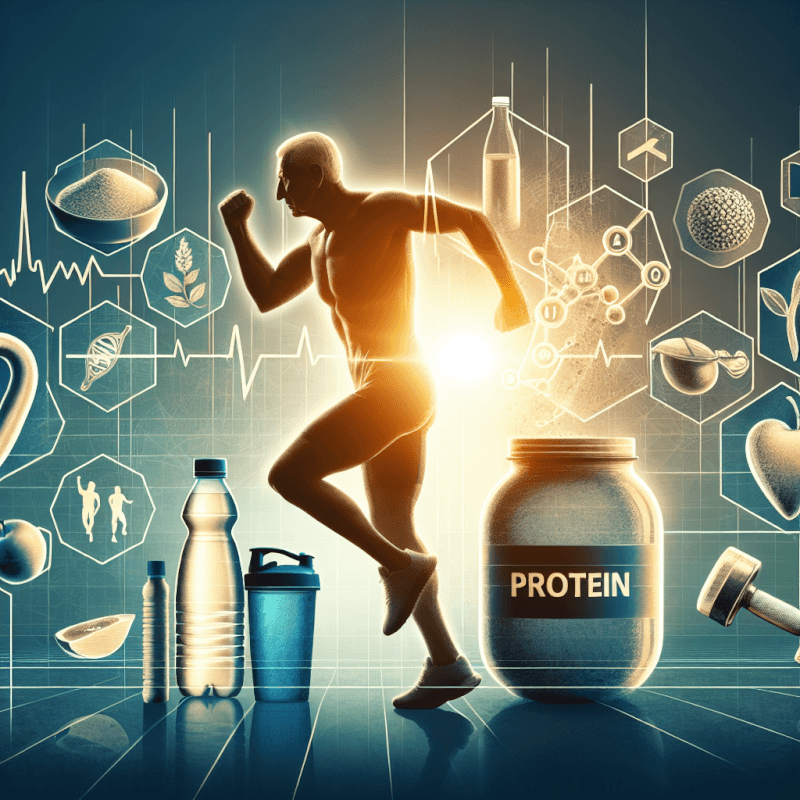As an active Boomer, you understand the importance of maintaining a healthy lifestyle, and that includes paying attention to your nutritional needs. With age, your body’s nutritional requirements may change, and it’s crucial to make informed choices regarding your diet. In this article, we will explore the key nutritional considerations for active Boomers, providing you with valuable insights and tips to support your overall well-being. From understanding macronutrients to incorporating specific vitamins and minerals into your daily intake, you’ll gain a better understanding of how to nourish your body as you embrace an active and fulfilling lifestyle.
Healthy Macronutrient Balance
Maintaining a healthy macronutrient balance is crucial for individuals of all ages, particularly active Boomers. A macronutrient refers to a type of nutrient that the body needs in large quantities for energy and proper functioning. The three main macronutrients are carbohydrates, proteins, and fats.
Importance of Carbohydrates
Carbohydrates are a primary source of energy for the body. They provide glucose, which is the fuel that powers our muscles and brain. For active Boomers, carbohydrates are especially important as they support physical activity and fuel exercise performance. Carbohydrates can be found in foods such as whole grains, fruits, vegetables, and legumes. Opting for complex carbohydrates, like whole grains, rather than refined carbohydrates, such as white bread or sugary treats, is recommended as they provide more sustained energy.
Importance of Proteins
Proteins play a vital role in muscle repair, growth, and maintenance. They are made up of amino acids, which are the building blocks for our muscles, organs, and immune system. Active Boomers may need higher protein intake to support muscle mass, promote recovery from exercise, and maintain overall health. Good sources of protein include lean meats, poultry, fish, eggs, dairy products, legumes, nuts, and seeds. Incorporating a variety of protein sources into your diet can ensure that you are obtaining all essential amino acids.
Importance of Fats
Contrary to popular belief, dietary fats are essential for optimal health. They provide energy, aid in the absorption of fat-soluble vitamins, and support cell growth and function. For active Boomers, fats can also provide a source of long-lasting energy during exercise. It is important to focus on consuming healthy fats, such as monounsaturated and polyunsaturated fats found in foods like avocados, nuts, seeds, and fatty fish. Limiting saturated and trans fats, commonly found in fried foods and processed snacks, is recommended as they can contribute to heart disease and other health issues.
Adequate Protein Intake
Protein plays a crucial role in the health and well-being of active Boomers. Adequate protein intake is especially important for supporting muscle mass, enhancing recovery, and promoting bone health.
Supporting Muscle Mass
As we age, it’s natural for our muscles to gradually decline in mass and strength. However, incorporating enough protein into your diet can slow down this process. Protein is essential for building and repairing muscle tissue, which is particularly important for active Boomers who engage in regular physical activity. By ensuring adequate protein intake, you can help maintain muscle mass and strength, improving overall quality of life.
Enhancing Recovery
Physical activity, such as exercise, can sometimes result in muscle damage. Consuming protein post-workout can aid in the repair and recovery process. Protein provides the necessary amino acids to rebuild muscle fibers and minimize soreness. Including a protein source, such as a lean meat, fish, or dairy product, within 30 minutes to an hour after exercise can help optimize recovery and support future workouts.
Promoting Bone Health
Bone health becomes increasingly important as we age, and protein is a key nutrient in maintaining strong and healthy bones. In addition to providing structural support, proteins play a role in mineral uptake and bone formation. Active Boomers should aim to consume an adequate amount of protein to support bone health and reduce the risk of osteoporosis. Combined with regular weight-bearing exercise, adequate protein intake can help preserve bone density and reduce the likelihood of fractures.

Sufficient Hydration
Staying properly hydrated is crucial for overall health and well-being, regardless of age. However, active Boomers may need to pay extra attention to their hydration levels due to increased physical activity.
Importance of Water Intake
Water is essential for virtually every function in our bodies, from digestion to temperature regulation. It helps transport nutrients, remove waste, lubricate joints, and maintain overall balance. When engaging in physical activity, the body loses water through sweat, and it’s important to replenish those fluids to avoid dehydration.
Benefits of Proper Hydration
Proper hydration offers numerous benefits for active Boomers. It helps maintain optimal cognitive function, supports cardiovascular health, enhances muscle performance, and aids digestion. Additionally, staying well-hydrated can help prevent cramping, fatigue, and heat-related illnesses during exercise.
Tips for Staying Hydrated
To ensure you stay properly hydrated, it’s important to drink water throughout the day, not just during physical activity. A general guideline is to aim for eight cups, or 64 ounces, of water per day. However, individual needs may vary depending on factors such as climate, activity level, and overall health. Carry a reusable water bottle with you to remind yourself to drink regularly, and consider flavoring your water with a squeeze of lemon or infusing it with fresh fruits for added taste. Monitor the color of your urine; if it’s pale yellow, you’re likely well-hydrated, whereas darker urine may indicate dehydration.
Vitamins and Minerals
In addition to macronutrients, active Boomers should pay attention to their intake of vitamins and minerals to support overall health and well-being. Certain vitamins and minerals, such as vitamin D, calcium, and vitamin B12, are of particular importance for this age group.
Vitamin D for Bone Health
Vitamin D is essential for the absorption and utilization of calcium and phosphorus, two minerals crucial for bone health. Active Boomers should ensure adequate vitamin D intake to support bone density and reduce the risk of osteoporosis. Spending time outdoors in the sunlight, consuming fortified foods like milk or orange juice, and considering supplements if necessary can help maintain optimal vitamin D levels.
Calcium for Bone Health
Calcium is a mineral that plays a key role in the development and maintenance of strong bones. Active Boomers should aim for adequate calcium intake to support bone health and prevent the age-related decline in bone density. Good sources of calcium include dairy products, leafy green vegetables, fortified plant-based milk alternatives, and calcium-fortified foods.
Vitamin B12 for Energy
Vitamin B12 is essential for energy production, nerve function, and the production of red blood cells. As we age, our bodies may have a harder time absorbing vitamin B12. Active Boomers should ensure adequate intake, especially if following a vegetarian or vegan diet, as this vitamin is primarily found in animal-based foods. Consider consuming fortified foods or taking a vitamin B12 supplement to meet your needs.

Omega-3 Fatty Acids
Omega-3 fatty acids are a type of polyunsaturated fat that offer numerous health benefits, particularly for active Boomers.
Benefits for Heart Health
Omega-3 fatty acids have been extensively researched for their positive effects on heart health. They can help reduce inflammation, lower blood pressure, decrease triglyceride levels, and improve overall cardiovascular function. Including foods rich in omega-3 fatty acids, such as fatty fish like salmon or trout, walnuts, and chia seeds, can contribute to a heart-healthy diet.
Anti-inflammatory Properties
Inflammation in the body has been linked to various chronic diseases, including heart disease, diabetes, and certain cancers. Omega-3 fatty acids have anti-inflammatory properties, helping to reduce inflammation throughout the body and promote overall well-being. Consuming omega-3-rich foods or considering a fish oil supplement can be beneficial for active Boomers seeking to manage inflammation.
Sources of Omega-3 Fatty Acids
In addition to fatty fish, other excellent sources of omega-3 fatty acids include flaxseeds, hemp seeds, soybeans, and leafy green vegetables like spinach. Consider incorporating these foods into your diet to reap the potential health benefits of omega-3 fatty acids.
Antioxidant-Rich Foods
Antioxidants are substances that help protect our cells against damage caused by free radicals, which are unstable molecules that can contribute to aging and various diseases. Including antioxidant-rich foods in your diet can provide numerous health benefits, particularly for active Boomers.
Protecting Against Age-related Diseases
Free radicals can cause oxidative stress within the body, contributing to the development of age-related diseases, such as heart disease, certain cancers, and neurodegenerative conditions. Antioxidants help neutralize free radicals, reducing the risk of these diseases. Including foods rich in antioxidants, such as berries, dark chocolate, green tea, and colorful fruits and vegetables, can help protect against age-related illnesses.
Promoting Cellular Health
Antioxidants play a vital role in maintaining the health and function of our cells. By protecting the DNA and other cellular components from damage, antioxidants promote optimal cellular functioning. This can contribute to overall well-being and improve the body’s ability to recover from physical exertion. Including a variety of antioxidant-rich foods in your diet ensures a diverse range of antioxidants to support cellular health.
Examples of Antioxidant-Rich Foods
Some examples of antioxidant-rich foods include blueberries, strawberries, kale, spinach, oranges, turmeric, and green tea. Including these foods in your daily meals and snacks can help ensure you are obtaining a wide range of antioxidants and reaping their potential health benefits.

Fiber for Digestive Health
Fiber is a type of carbohydrate that cannot be digested by the body. Despite this, it plays a crucial role in maintaining digestive health and overall well-being.
Promoting Regularity
Fiber adds bulk to the stool and helps prevent constipation by promoting regular bowel movements. It can also help alleviate symptoms of other digestive disorders, such as diverticulosis and hemorrhoids. Consuming an adequate amount of fiber through foods like whole grains, fruits, vegetables, and legumes can promote a healthy digestive system.
Reducing the Risk of Chronic Diseases
A high-fiber diet has been associated with a reduced risk of chronic diseases, such as heart disease, type 2 diabetes, and certain types of cancer. Fiber helps regulate blood sugar levels, lower cholesterol, and promote satiety, which can contribute to weight management. Active Boomers can benefit from including fiber-rich foods in their diet to support overall health and reduce the risk of chronic diseases.
Sources of Dietary Fiber
Foods rich in dietary fiber include whole grains, such as oats and brown rice, fruits like apples and berries, vegetables like broccoli and Brussels sprouts, legumes like lentils and chickpeas, and nuts and seeds. Aim to include a variety of fiber sources in your meals and snacks to ensure an adequate intake.
Reducing Salt Intake
While our bodies need some sodium for proper function, excessive sodium intake can have negative effects on health, particularly for active Boomers.
Health Risks of Excessive Sodium
Too much sodium in the diet can contribute to high blood pressure, which is a risk factor for heart disease, stroke, and other cardiovascular conditions. It can also lead to fluid retention, causing bloating and swelling. By reducing sodium intake, active Boomers can help lower their risk of these health issues and maintain optimal cardiovascular health.
Tips for Reducing Salt Intake
To reduce salt intake, it’s important to be mindful of the sodium content in foods and opt for lower-sodium alternatives. Read food labels and choose products that are lower in sodium or labeled as “low-sodium.” When cooking, use herbs, spices, and other seasonings instead of salt to add flavor to dishes. Additionally, limit your consumption of processed foods, which often contain high levels of sodium, and opt for fresh, whole foods whenever possible.
Alternative Seasonings
There are many alternative seasonings that can add flavor to your meals without relying solely on salt. Experiment with herbs like basil, thyme, and rosemary, spices like cumin, turmeric, and paprika, and condiments like lemon juice, vinegar, or hot sauce. By getting creative with your seasoning choices, you can reduce your salt intake while still enjoying delicious meals.

Balancing Blood Sugar Levels
For active Boomers, maintaining stable blood sugar levels is crucial for energy levels and overall well-being. A balanced approach to carbohydrate consumption, along with the inclusion of fiber and protein, can help achieve this.
Importance of Stable Blood Sugar
Blood sugar, or glucose, is the primary source of energy for our cells. When blood sugar levels are too high or too low, it can result in fatigue, mood swings, and difficulty concentrating. By balancing blood sugar levels, active Boomers can enhance their energy levels and feel their best throughout the day.
Managing Carbohydrate Intake
Carbohydrates have the biggest impact on blood sugar levels, as they are broken down into glucose during digestion. However, this does not mean that carbohydrates should be completely avoided. Instead, focus on choosing complex carbohydrates, like whole grains, fruits, and vegetables, which are digested more slowly and have a gentler effect on blood sugar levels. Limiting the consumption of refined carbohydrates, such as sugary snacks and beverages, can also help maintain stable blood sugar levels.
Including Fiber and Protein
Including fiber and protein in every meal can help slow down the digestion and absorption of carbohydrates, preventing spikes and crashes in blood sugar levels. Fiber-rich foods, such as whole grains, fruits, and vegetables, can help regulate blood sugar levels and promote feelings of fullness. Protein, found in foods like lean meats, fish, eggs, and legumes, can further stabilize blood sugar levels and provide a sustained source of energy.
Pre and Post-Workout Nutrition
Proper nutrition before and after exercise can enhance performance, aid in recovery, and support overall fitness goals. Active Boomers should pay attention to their pre and post-workout meals to optimize the benefits of physical activity.
Eating Before Exercise
Eating a balanced meal or snack before exercise provides the necessary fuel to perform at your best. Aim to consume a combination of carbohydrates and protein, which will provide energy and support muscle repair and recovery. Examples of pre-workout snacks could include a banana with a handful of nuts, a turkey and cheese wrap on whole grain bread, or a protein smoothie with fruits and vegetables.
Recovering After Exercise
After a workout, the body needs nutrients to repair muscles, replenish glycogen stores, and rehydrate. Including a post-workout meal or snack within one hour of completing exercise is crucial. Ideally, this meal should contain both carbohydrates and protein to replenish energy stores and promote muscle repair. Good post-workout options include a lean protein, such as grilled chicken or fish, with a side of whole grains and vegetables, or a protein shake with added fruits and greens.
Balancing Macronutrients
When planning pre and post-workout meals, it’s important to consider the balance of macronutrients. Carbohydrates provide energy for physical activity, while protein supports muscle repair and growth. Including a moderate amount of healthy fats can also provide sustained energy during exercise. Finding the right balance of these macronutrients can help active Boomers optimize their workouts and aid in recovery. Experiment with different meal combinations and listen to your body’s needs to find what works best for you.
In conclusion, active Boomers should prioritize their nutritional intake to support overall health, well-being, and performance. Maintaining a healthy macronutrient balance, including adequate protein, staying sufficiently hydrated, incorporating vitamins and minerals, consuming omega-3 fatty acids and antioxidant-rich foods, ensuring fiber intake, reducing salt intake, balancing blood sugar levels, and optimizing pre and post-workout nutrition are all key considerations. By adopting these nutritional habits, active Boomers can enjoy vibrant health, optimal physical performance, and a high quality of life.



